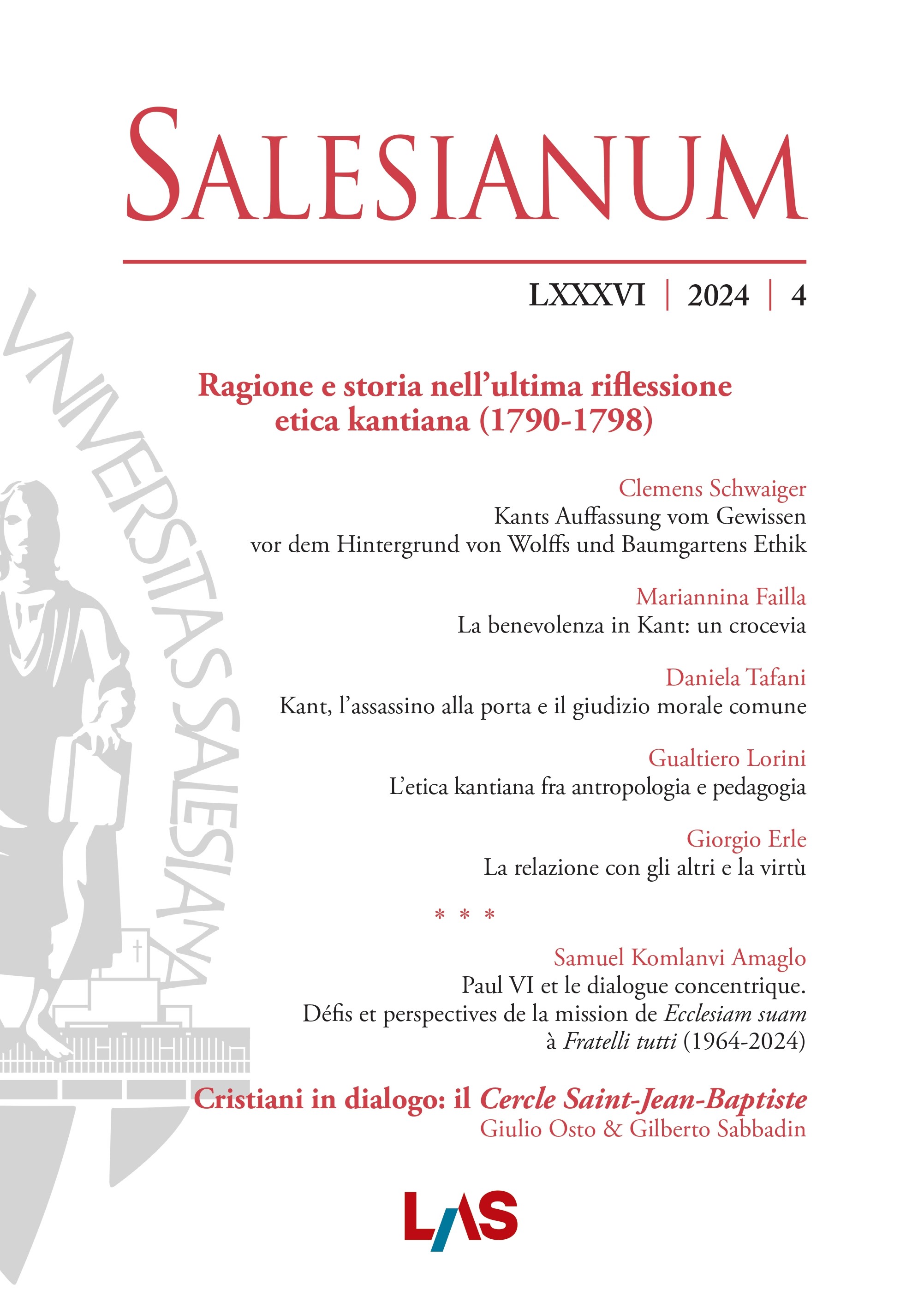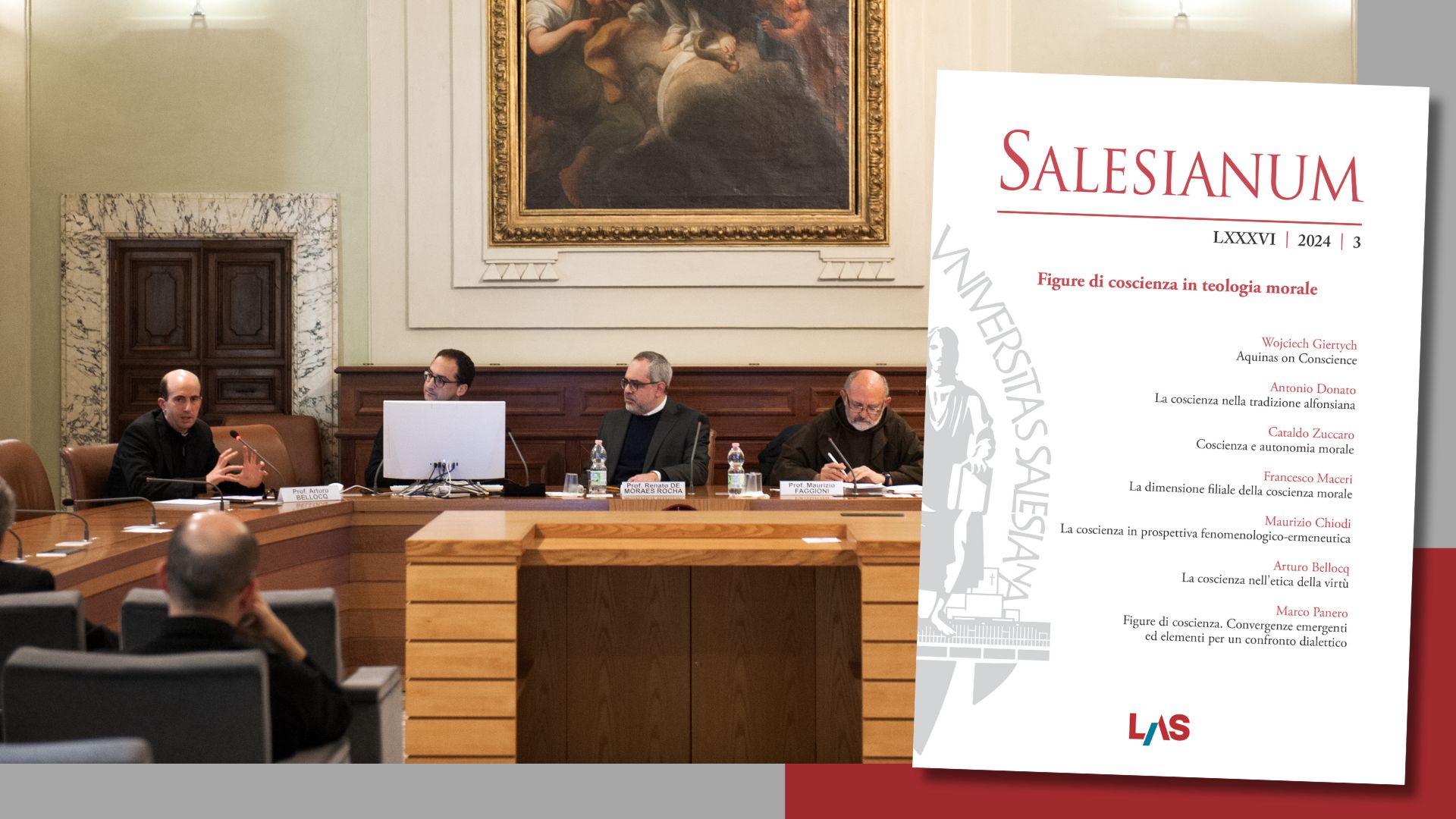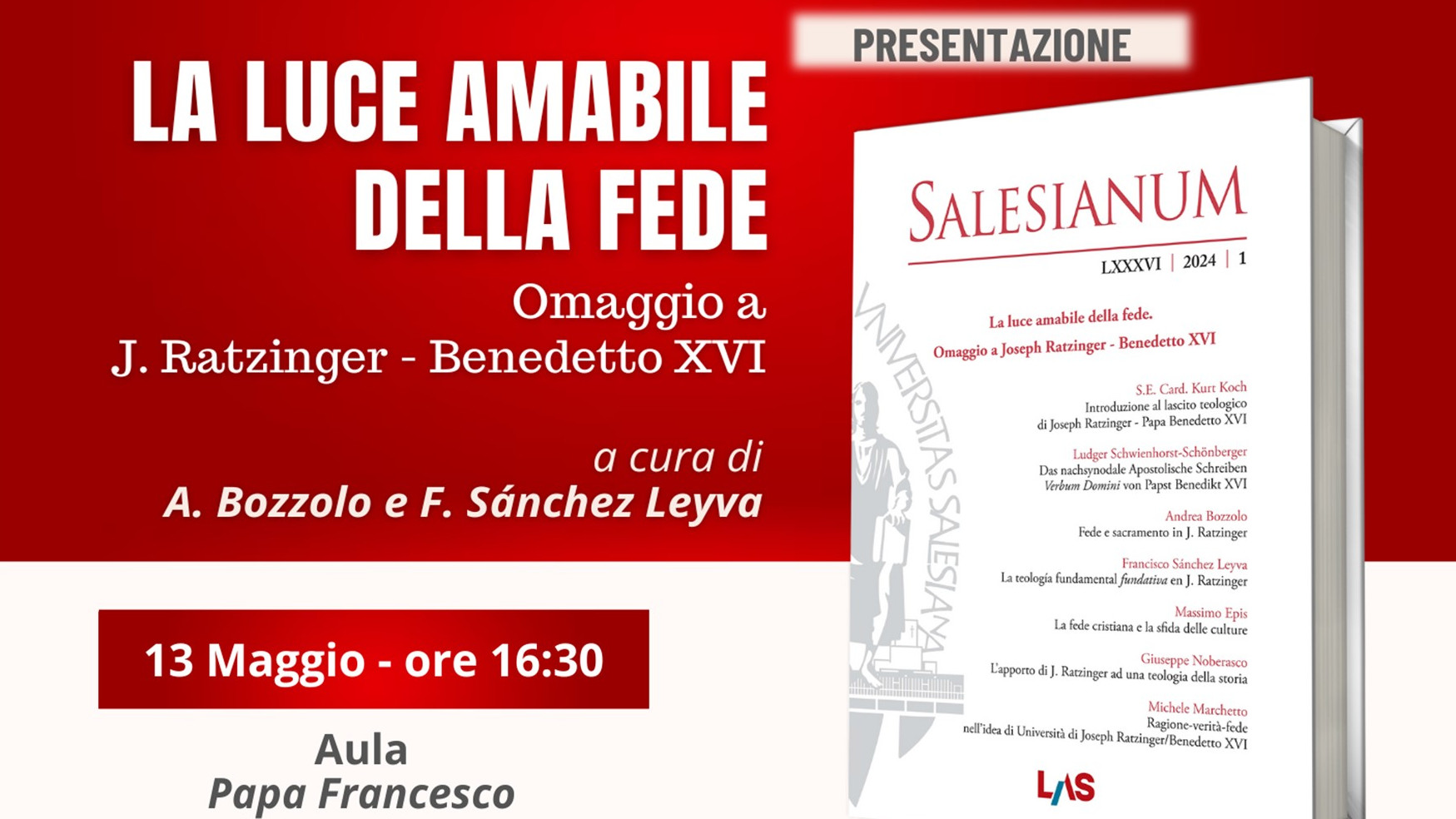L’apporto di J. Ratzinger ad una teologia della storia
The Contribution of J. Ratzinger to a Theology of History
Salesianum vol. 86 (2024) n. 1, 127-148Sezione: Studia
Ricevuto: 08-02-2024 - Approvato: 12-02-2024
Sommario
Il riferimento alla storia della salvezza è per Ratzinger reale se si traduce nell’attenzione a ciò che nella storia propriamente accade, determinandone il senso e la direzione. Per questo motivo, egli prende le distanze da tutti quegli approcci in cui la storia è risolta o in senso generico o spersonalizzante. È quanto accade con il metodo storico critico, in cui la singolarità dell’evento è risolta nell’orizzonte del metodo. Analogo difetto è presente nelle risoluzioni della storia alla tensione verso un futuro che, di fatto, rende irrilevante la singolarità di ogni evento della vicenda. Le riflessioni che Ratzinger svolge, fin dagli inizi del suo percorso teologico (in particolare nello studio sulla teologia della storia di Bonaventura), sul tema della tradizione consentono di evitare tale deriva tramite un diverso approccio alla storia. Nella tradizione l’evento Gesù Cristo si manifesta come il centro della storia non requisendone in sé il senso (come accade nella teologia di Barth), ma rimandandosi all’irriducibilità dell’esperienza credente di ogni epoca. Ad ogni epoca è affidato il compito di rivelare il compimento cristologico, per cui l’unità della vicenda storica si afferma nel riconoscimento della singolarità di ogni momento della vicenda.
Parole chiave
Storia | Tradizione | Soggetto | Relazione | Epoca
Abstract
For Ratzinger, the reference to the history of salvation is real if it translates into attention to what properly happens in history, determining its sense and direction. For this reason, he distances himself from all those approaches in which history is resolved either in a generic or in a depersonalizing sense. This is what happens with the historical critical method in which the singularity of the event is resolved within the horizon of the method. An analogous defect is present in the resolutions of history to the tension towards a future that, in fact, makes irrelevant the singularity of every event of the story. The reflections that Ratzinger has been carrying out since the beginning of his theological journey (particularly in the study of the theology of Bonaventure’s history) on the theme of tradition allow us to avoid this drift through a different approach to history. In tradition, the event Jesus Christ manifests himself as the centre of history, not appropriating its sense in himself (as happens in Barth’s theology), but referring to the irreducibility of the believing experience of every age. Each epoch is entrusted with the task of revealing the Christological fulfilment, thus the unity of the historical event is affirmed in the recognition of the singularity of every moment of the event.
Keywords
History | Tradition | Subject | Relation | Epoch


